Panamanian Emerald Manor characteristics of Summer Coffee beans in the World's Ten Coffee Manors with Blue, Green and Red Rose

Professional coffee knowledge exchange more coffee bean information please follow the coffee workshop (Wechat official account cafe_style)
When it comes to Panamanian coffee, Qianjie Coffee has to mention Panamanian Emerald Manor.
Panamanian Emerald Manor is not only the discoverer of rose summer flavor, but also the promoter of rose summer coffee. From their introduction of rose summer varieties, we can see that they attach importance to rose summer and the guarantee of its quality. When it comes to the quality control ability of the jadeite manor, Qianjie coffee has to mention the grading system of the jadeite manor. Jade Manor has created its own grading system, which divides Rosa coffee beans according to different grades.
Panamanian coffee
The climate makes coffee in Panama. Bordering Costa Rica and Colombia, Panama's east-west environment allows cold air to flow through the Central Mountains and converge at more than 6500 meters above sea level, thus creating a very unique microclimate in the Poquet Boquete and Kendra Piedra de Candela region, with temperatures and rainfall suitable for plant growth, which is the main producer of Panamanian coffee. In addition to the climate, the land around this area is rich in nutrients, and the fertile soil provides perfect conditions for the growth of coffee, creating a large number of unique, high-quality coffee.
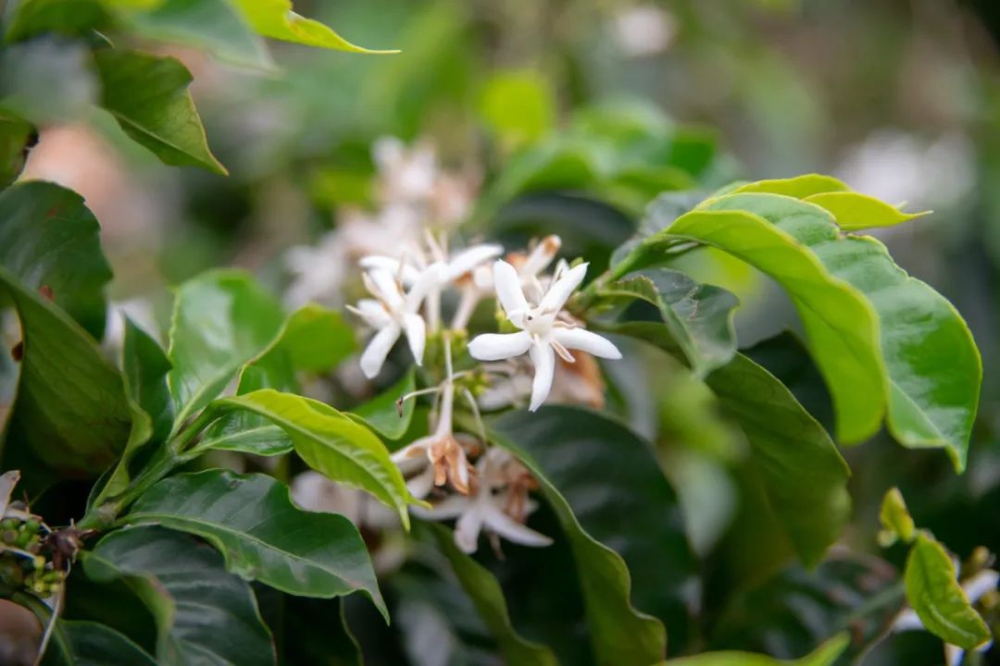
In addition to natural factors, Qianjie Coffee also learned that there is another important factor for Panamanian coffee to attract worldwide attention. Qianjie Coffee feels that since the end of the 20th century, the development of Panamanian coffee can be said to have come all the way with a golden spoon. Because at the end of the 20th century, the United States helped Panama build a canal, but also independently controlled for a period of time, when a large number of American elites went south to Panama, on the one hand, to work needs, on the other hand, to tap business opportunities. The Emerald Manor is the witness of this elite trend era.
Jensen Manor
There is a new finalist for the Best Panamanian Coffee Award awarded by the Panama Fine Coffee Association (SCAP) in 2013. It's Carl Jensen's Jensen Village horticultural geisha! Also known as "champagne in the coffee world". Full of jasmine and delicate berry flavor, taste clean, honey, litchi flavor.
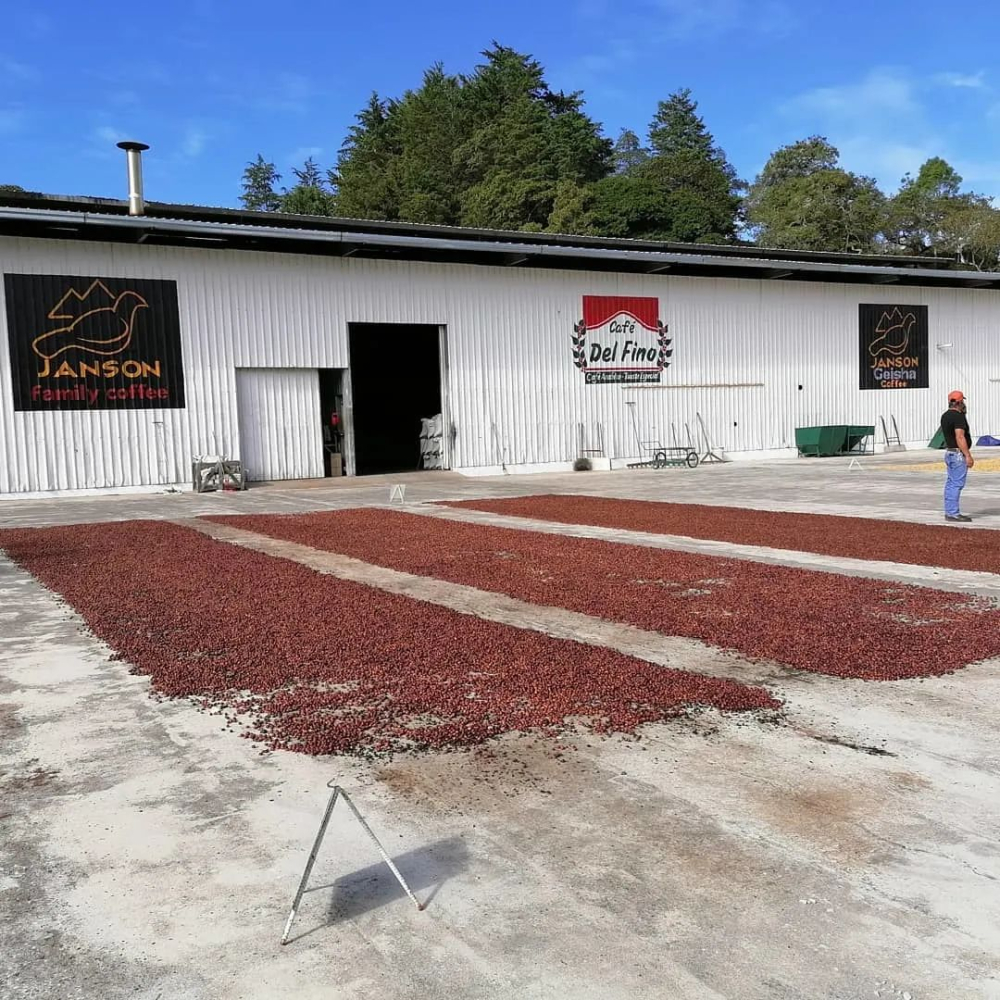
Rose is full of sweetness and cleanliness on the palate, with rich aromas ranging from berry and citrus to mango, papaya and peach. A very obvious lemon (bergamot) general aftertaste is also a typical cup test attribute. So far, Rose Summer has been the champion of coffee varieties. Jensen Rose Summer is rarely heard of in China, because Jason Manor is mainly for domestic sales and does not export. At this high altitude, nutrient-rich volcanic soil, abundant rainfall and suitable temperature, Jensen Manor has gradually become the second highest yield of rose summer among Panamanian estates, and 50% of the estates are planted with rosy summer coffee trees. Hartmann Manor
At Hartman Manor in Panama, we see that people growing coffee here always follow the requirements of green protection, and the compost on the farm is made of pulp and cherry skins. Curious about what kind of coffee taste will be nurtured in such an environment, I can't wait to make a cup of Hartman. Ta is pure, sweet and bright, with a strong honey flavor and drupe sweet flavor, and every inch of the mouth has a mellow taste of milk chocolate, even if it is cold. In addition to the local superior climatic conditions, careful cultivation and strict picking, its perfect taste also comes from the special treatment-red wine treatment.
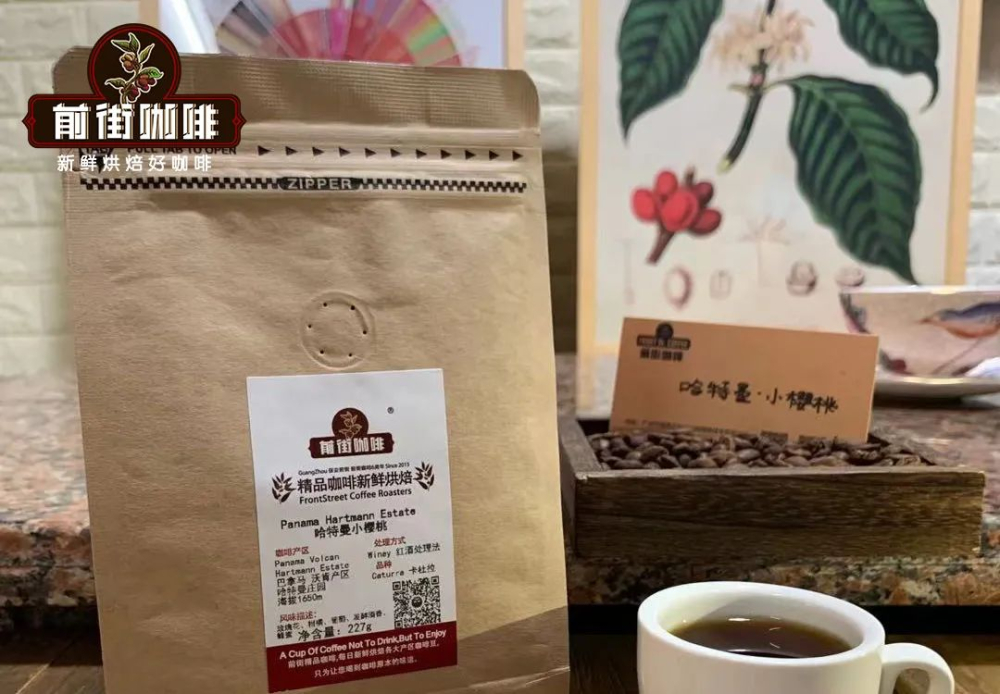
Hartman Manor has a wide variety of coffee, including Typica, Kaddura, Catuai, Bourn, Pacamara, Maragogipe and Geisha.
Jade Manor (La Esmeralda Estate) (Bouquete)
The Jadeite Manor is located in the corner of the Baru volcano, so the coffee beans produced in this area are mostly named after Baru Mountain when they are not well-known. The surrounding area of Bouquete is scenic, with many leisure hotels, villa, resort estates, and even along the important river Rio Caldera. The Emerald Manor (La Esmeralda) is on the right side of the river in Jaramillo, and then grows coffee in the higher elevation area of Canas Verdes on the left side of the river. It's all thanks to Rudolph Peterson's decision to buy the industry.
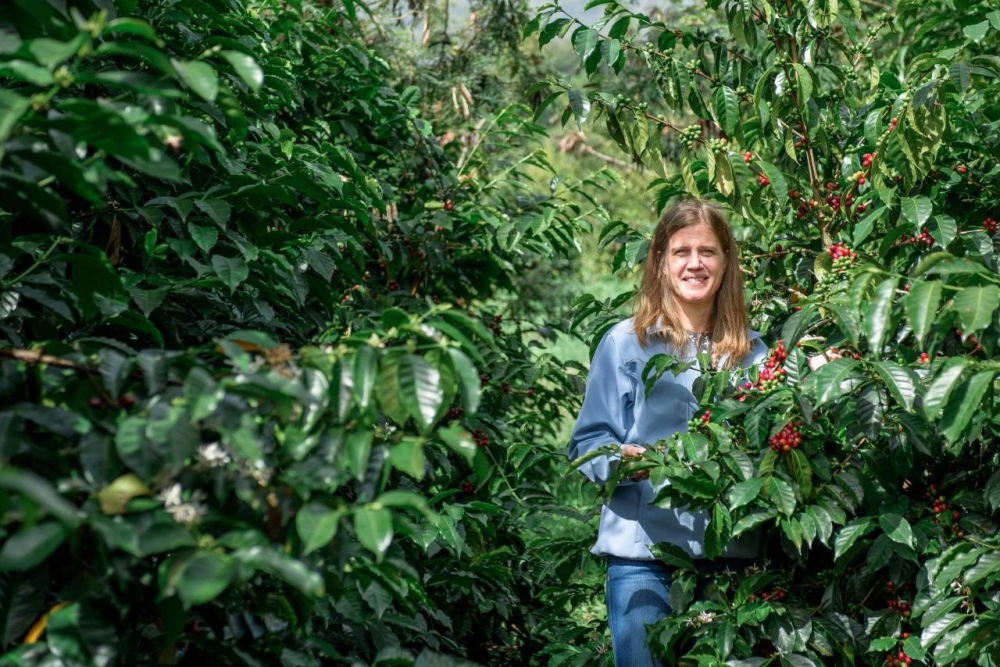
Rudolph A. Peterson1964, the first generation owner of Emerald Manor, Swedish-American financier Rudolph. Rudolph A.Peterson retired, moved to Panama and bought Bouquete's emerald estate, which is dominated by dairy. A former president of Bank of America and a big shot in the financial circle at the time, Rudolph bought Hacienda La Esmeralda only for vacation and later retirement, not expecting that the estate would become world-famous and even become a representative of the Panamanian boutique coffee estate. In 1973, his son Price. Peterson earned a doctorate in neurochemistry in the United States, but returned to Bouquete to help his father run the farm. After taking over, Price divides the market into three major brands to sell according to altitude and micro-climate, cup performance and planting varieties (Esmeralda Special,Diamond Mountain grows,Palmyra). Since 2012, Rosa (Geisha / Geisha) has become one of the four major brands.
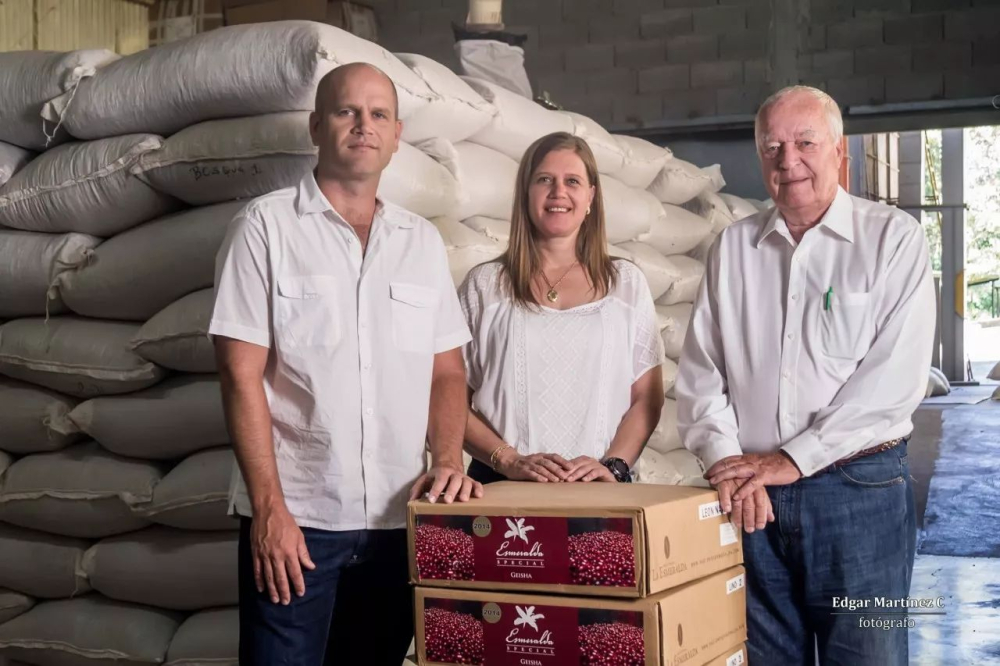
[Emerald Manor] actually consists of four farms: Cades Verdes, El Velo, Jaramillo and Palmira. All coffee beans are sent to four farms for processing. The first farm bought by the Peterson family, the owner, was Palmira.
First, the Jadeite Special selection (Esmeralda Special), that is, the independent bidding held by the Jadeite Manor itself, is entirely based on the Rose Summer (Geisha / Geisha), each block is subdivided into small batches according to the name of the production block. only the Rosa Xia (Geisha / Geisha) batch that the manor takes out for independent bidding can use the Jadeite Special name. Since 2013, there have been nine batches of the Jadeite Special selection.
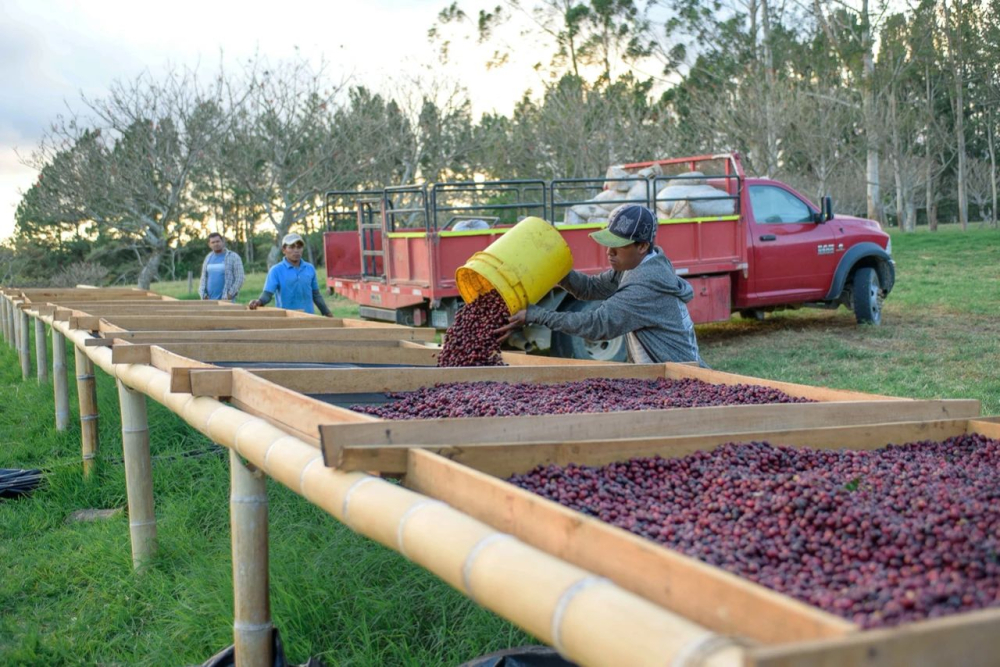
Jade Manor Veil Farm (El Velo) Veil Farm (El Velo), which was acquired by Jade Manor in 2012, is the latest farm in the estate. Qianjie Coffee learned that the farm has been certified by the Rainforest Alliance (Rainforest Alliance Certified), proving the environmental friendliness and conservation awareness of the Emerald Manor coffee base. The Veil Farm, which covers an area of 50 hectares, grows not only Rosa and Kaduai beans, but also a small number of exotic beans such as Laurina, Pacamara, Mocha and SL28, as well as more than 400 other beans obtained from CATIE as part of the farm's long-term commercial exploration.
Although the farm land winds its way up the mountains, up to 3900 meters above sea level, coffee is grown between 1650 and 1900 meters above sea level. Qianjie Coffee also learned that there is a nature reserve here. It is home to the famous cuckoo and other endangered birds.
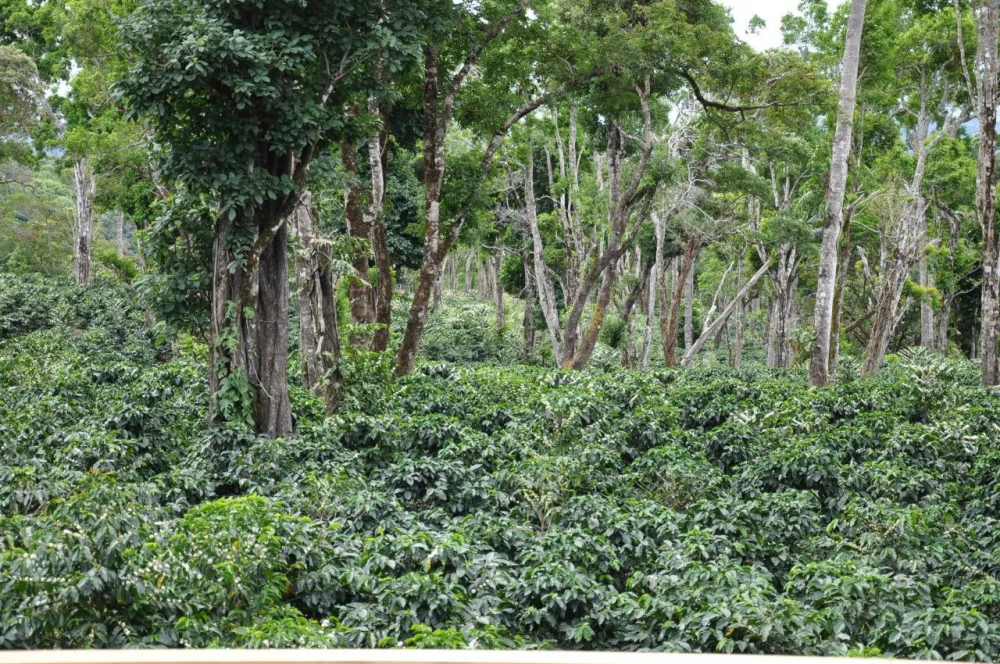
The special micro-batch of Jadeite Manor is called Prueba batch. Prueba means "experiment, test" in Spanish. In the process of unremitting efforts to improve the quality of coffee, Jadeite Manor not only makes unremitting efforts in the process of variety selection and planting, but also constantly tries new ways in the treatment method. Pruba 4 (Prueba 4) belongs to a special innovative batch of special collection plots of Jadeite Manor. Since 2004, this rare coffee growing plot has won more than 15 international awards. The coffee produced here does not participate in the auction at the Jade Manor and will be sold in small quantities through direct trade. At present, the Emerald Manor mainly has three manors to grow rose summer varieties: veil El Velo, Cannes Vidis Caas Verdes, Haramillo Jaramillo. Haramillo Jaramillo, which has a superior geographical environment and good flavor of the original coffee variety, was bought in 1996. Veil El Velo was acquired by Jade Manor in 2012. Qianjie Coffee believes that the acquisition of a high-altitude manor like Jade Manor was a unique decision at that time, which made it possible for the Jade Manor to occupy a certain position in the coffee industry.
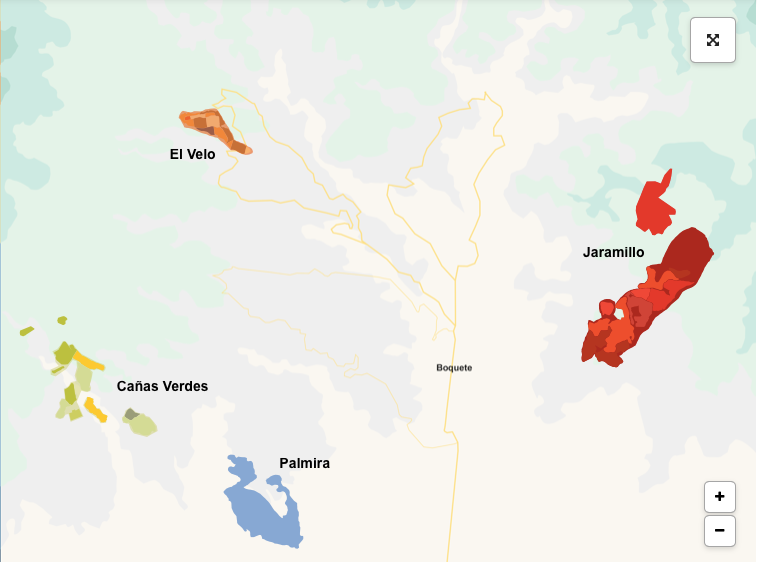
Qianjie Coffee learned that although the Feicui Manor found coffee beans with flavor at the beginning, in order to be accurate, the coffee beans in different areas of the garden were tested and the planting plots were determined according to the elevation. That's why we now know the red, green and blue summer grades, which are all graded according to altitude.
After winning the championship of BOP in the Panamanian bean competition in 2004, it was later identified by experts that the coffee bean was a rose summer variety of Ethiopia. Since then, the Peterson family has focused most of its efforts on developing infrastructure to support excellent batch separation and fine processing. Rose summer red mark, green mark, blue mark
Qianjie Coffee believes that the biggest difference between the marketing strategy of the Jade Manor and other manors is that it is divided into five brands according to the cup test performance and the varieties and plots planted. There are three brands of Rose Summer varieties: jadeite Special selection (Esmeralda Special), Private Collection (Private Collection) and Rosa 1500 (Geisha1500). Kaduai has two brands: Diamond Hill (Diamond Mountain grows) and Pamela (Palmyra).
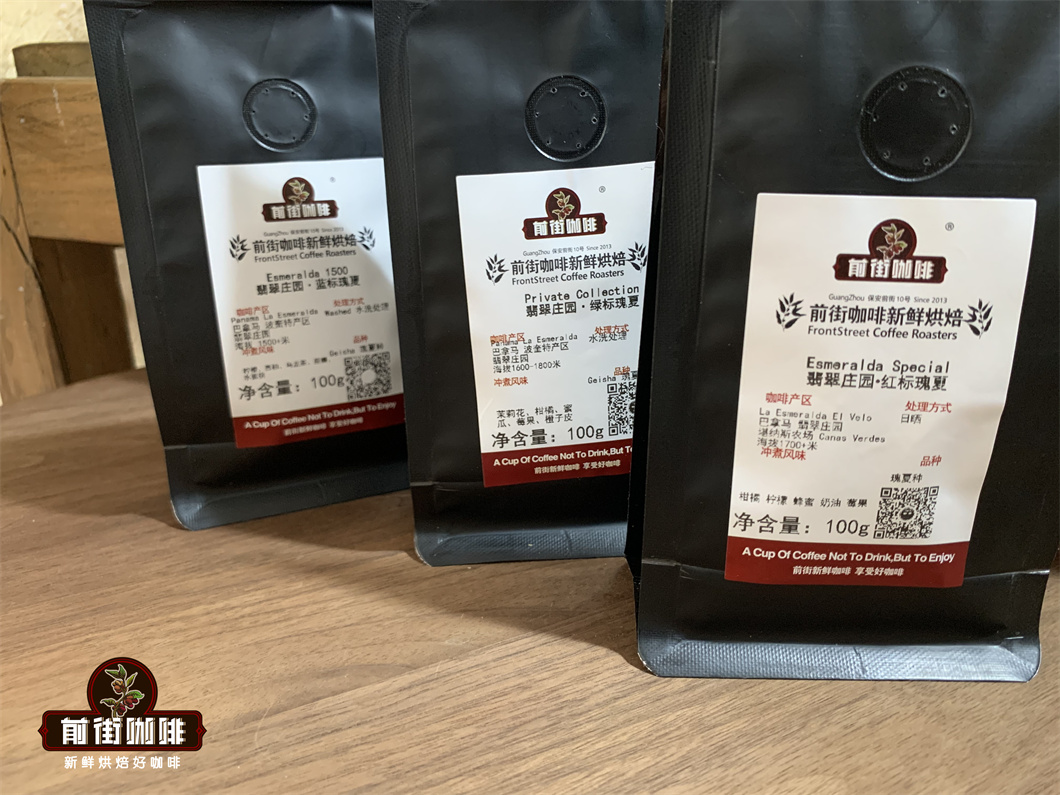
Red label Rose Summer
The rosy summer specially selected by jadeite is the red sign we often hear.
The rose beans, which are planted at 1600-1800 meters above sea level and with a cup test score of more than 90 points, are produced in two producing areas of Haramiyo (Jaramillo) and Canas Vidis (Canas Verdes).
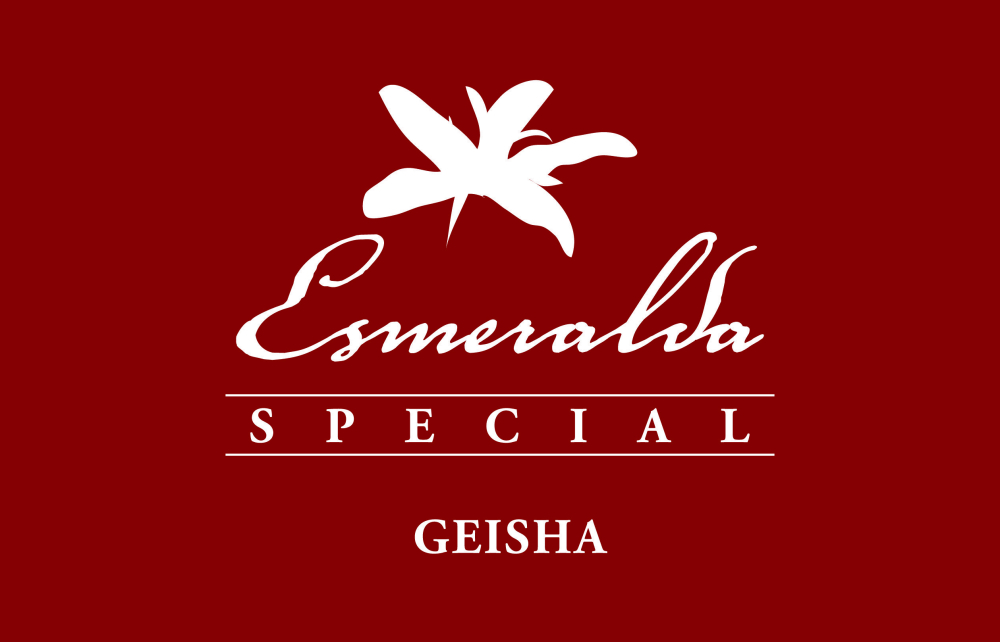
The independent bidding held by the Jade Manor itself, in the divided plots, the Rose Summer batch that was put forward for bidding is the red bid. Guests often ask whether the competitive red bid is good to drink or the red bid is good to drink. In fact, the non-competitive red bid and the competitive red bid belong to the same plot. The difference lies in whether they participate in the bidding or not. Qianjie coffee thinks that it is not necessary to drink the bidding grade, first, the price is really high, and second, if you just want to try, the red mark is also a good choice.
This grade of coffee is made into sun-cured or washed raw beans after the meeting. after 18 years, the new yeast treatment can only be purchased through the annual global auction, with a special, bright floral and citrus flavor.
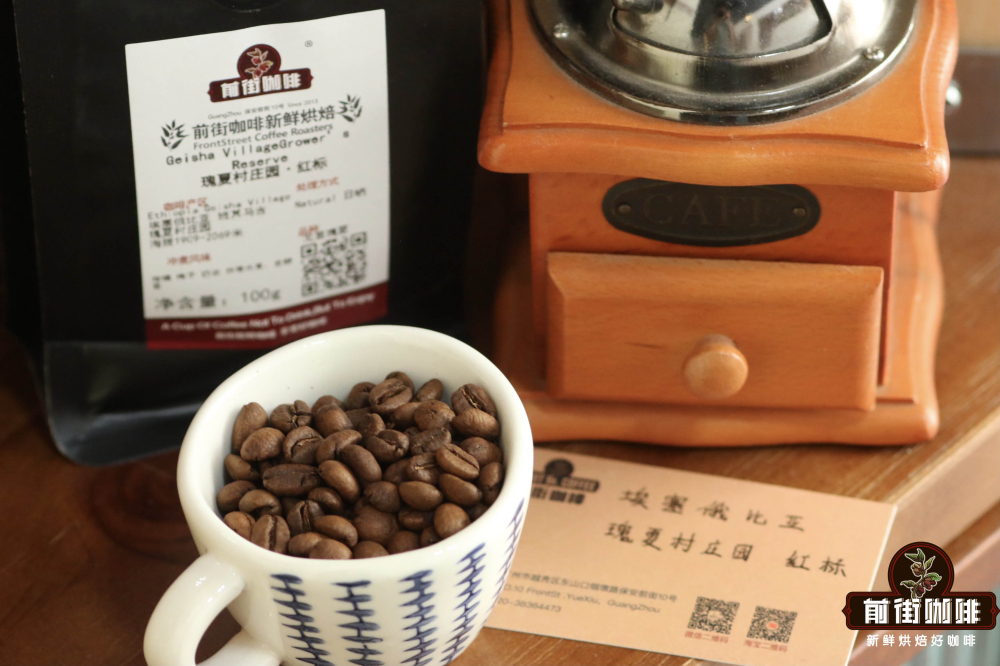
Green label Rose Summer
Private collection, commonly known as green standard, is not a batch of independent competitions, planting rose summer varieties that do not participate in bidding but are still of excellent quality. Micro-batch mixed beans from different plots such as Jaramillo and Canas Verdes were planted at 1600-1800 meters above sea level.

People often ask what is the difference between a red sign and a green one. Qianjie Coffee gives the most easy-to-understand answer, that is, which small plot can be traced back to the red mark, while the green mark is that the mixed beans are untraceable. Because the mode of mixed beans is adopted, it is not specified in detail on the plot, so sometimes the flavor of the green mark is very similar to that of the red mark, but the next product may be different. Qianjie coffee feels like buying a lottery ticket. Maybe the batch you drink this time is the taste of the red mark.
Although the green standard is not as high as the red standard, it still has the classic flavor of Rose Summer, floral, fruity, sour citrus, thick and juicy taste. The green sign of rose summer is also washed or tanned. Blue label Rose Summer
Rose summer 1500 this brand is our common blue standard rose summer. Choose mixed beans from three different plots: Jaramillo, Canas Verdes and El Velo, which are 1400-1500 meters above sea level. The flavor is slightly floral, sour and sweet, and the taste is not thick. At present, the blue label brand has been cancelled by the Jade Manor, and this batch of Rose Summer Coffee beans have been sold for export and become volcanic Rose Summer Coffee beans. The rose summer produced in this area is sold for export and becomes volcanic rock rose summer coffee beans with the same flavor as the original blue standard. Volcanic rock flavor is light flowers, sweet and sour fruit, the taste is not as full as the other two brands.
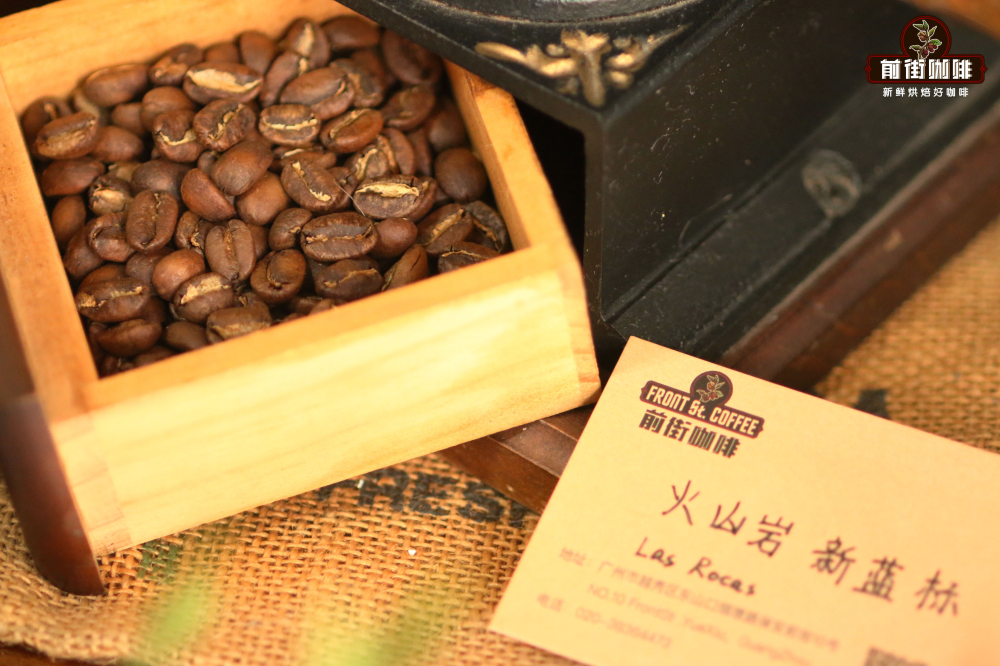
Second, rose summer (geisha / Geisha), that is, rose summer seed, but not the batch of independent competition, by the production area species do not participate in bidding but still excellent quality mixed into this brand, it is still a rose variety, and this brand strategy has been used since 2012.
Diamond Hill (Diamond Mountain grows), the traditional variety of jadeite, and planted Canas Verdes and Jaramillo, about 1400-1700m above sea level, coffee taste complex, chocolate, spice sweetness is obvious, the coffee varieties are standard Central American mixed type, including Tipica, Bourbon, Catuai and other three varieties. Diamond Hill is an environmentally friendly (Eoo-friendly), Rainforest Alliance certified (Rainforest Alliance Certified) coffee.
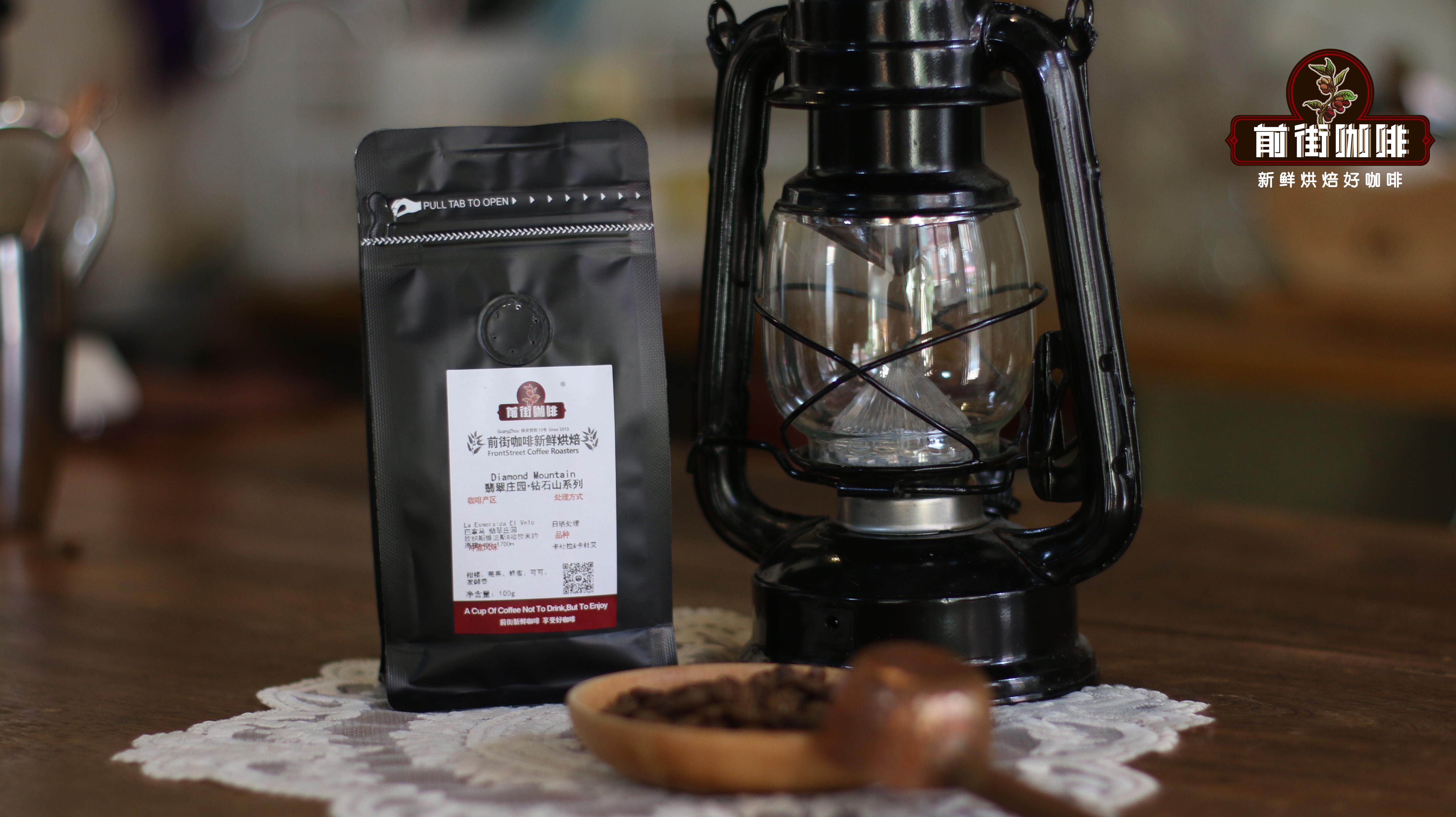
Fourth, Palmyra this brand of coffee is near the Baru Volcano Park, belongs to the jadeite manor commercial beans, 1100-1200 meters above sea level, all planted is Kaduai Catuai species, only here belongs to the altitude of farming, although not boutique, but the typical Panamanian Bouqete coffee flavor, sour will not be too exciting, sweet nuts and vanilla. Baking suggestion and cup test flavor
Qianjie roasted these three different grades of rose summer coffee beans, the main idea is to highlight the rich fragrance of rose summer flowers and bright and changeable fruit acid characteristics, using shallow baking methods. However, Qianjie takes into account the different growth environment of each level, and the baking details also need to be adjusted accordingly. [red Standard Rose Summer]
Dried incense: Jasmine, citrus
Wet fragrance: citrus, lemon, honey
Entrance: lemon, honey, berries, orange peel, mango, cream, citrus, tea [green label rose summer]
Dried incense: Jasmine, ginger
Wet fragrance: lemon, sweet orange
Entrance: lemon, orange, honey, cream, almonds, tea [blue label rose summer]
Dry fragrance: flower fragrance, citrus
Wet fragrance: citrus, lemon
Import: citrus, lemon, honey, nuts, tea Gan Qianjie Coffee Jade Manor Red Standard, Green Standard, Blue Standard Rose Summer Cooking suggestion:
The recommended brewing parameters for Qianjie coffee are: Hario V60 filter cup, 90 ℃ water temperature, 15 g powder quantity, 1:15 powder / water ratio, grinding degree EK43s scale 10 (Chinese standard 20 sieve pass rate 80%).

[cooking technique]
Qianjie coffee is extracted by stages, also known as three-stage brewing, steaming with 30 grams of water for 30 seconds, small water injection to 125 grams, continuous water injection to 225 grams when the water level is about to be exposed to the powder bed, and the filter cup is removed when the water level is about to be exposed. (steaming starts) the extraction time is 2 grams 3900 ". Flavor description
[red standard] there are bright roses, citrus aromas, black rice, berries, apricots, compound fruits, honey, thick juice, rich flavor, sweet and obvious.
[green standard] the jasmine is full-bodied and sweet, with citrus, berry, juice, cream, green tea, orange peel and cantaloupe as a whole.
[blue label] Flower aroma, with soft sour notes of lemon and grapefruit in the mouth, sweet honey in the middle, sweet oolong tea and brown sugar at the end, clean and bright taste.
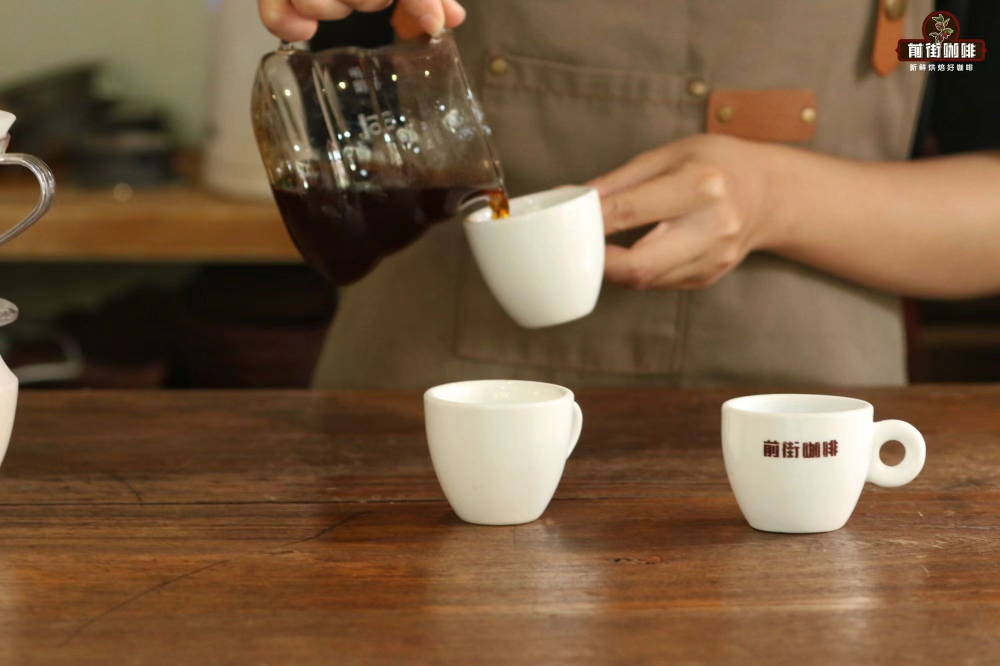
For more boutique coffee beans, please add private Qianjie coffee on Wechat. WeChat account: kaixinguoguo0925
Important Notice :
前街咖啡 FrontStreet Coffee has moved to new addredd:
FrontStreet Coffee Address: 315,Donghua East Road,GuangZhou
Tel:020 38364473
- Prev
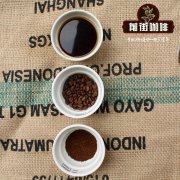
Introduction to the Flavor characteristics of Alvado Wula Manor Coffee
El Salvador, known as the smallest country in Central America and known as the land of volcanoes, has a reputation beyond life in specialty coffee-growing areas. Although coffee was grown mainly for domestic consumption, it became a stable and important crop over the next 100 years, especially in the late 19th century, when the country's indigo exports were synthetically dyed.
- Next
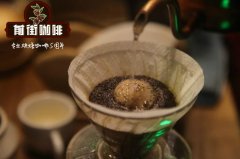
Where on earth is Bolivia? Bolivian coffee cultivars Bolivian coffee flavor
Professional coffee knowledge exchange more coffee bean information please follow the coffee workshop (Wechat official account cafe_style) where on earth is Bolivia? It is a landlocked country in South America, or you will know that it has the largest salt lake in the world, the Uyuni Salt Marsh, commonly known as the Mirror of the Sky, but you may not know that there are actually many small producing countries like Poland that are not well known.
Related
- Detailed explanation of Jadeite planting Land in Panamanian Jadeite Manor introduction to the grading system of Jadeite competitive bidding, Red bid, Green bid and Rose Summer
- Story of Coffee planting in Brenka region of Costa Rica Stonehenge Manor anaerobic heavy honey treatment of flavor mouth
- What's on the barrel of Blue Mountain Coffee beans?
- Can American coffee also pull flowers? How to use hot American style to pull out a good-looking pattern?
- Can you make a cold extract with coffee beans? What is the right proportion for cold-extracted coffee formula?
- Indonesian PWN Gold Mandrine Coffee Origin Features Flavor How to Chong? Mandolin coffee is American.
- A brief introduction to the flavor characteristics of Brazilian yellow bourbon coffee beans
- What is the effect of different water quality on the flavor of cold-extracted coffee? What kind of water is best for brewing coffee?
- Why do you think of Rose Summer whenever you mention Panamanian coffee?
- Introduction to the characteristics of authentic blue mountain coffee bean producing areas? What is the CIB Coffee Authority in Jamaica?

